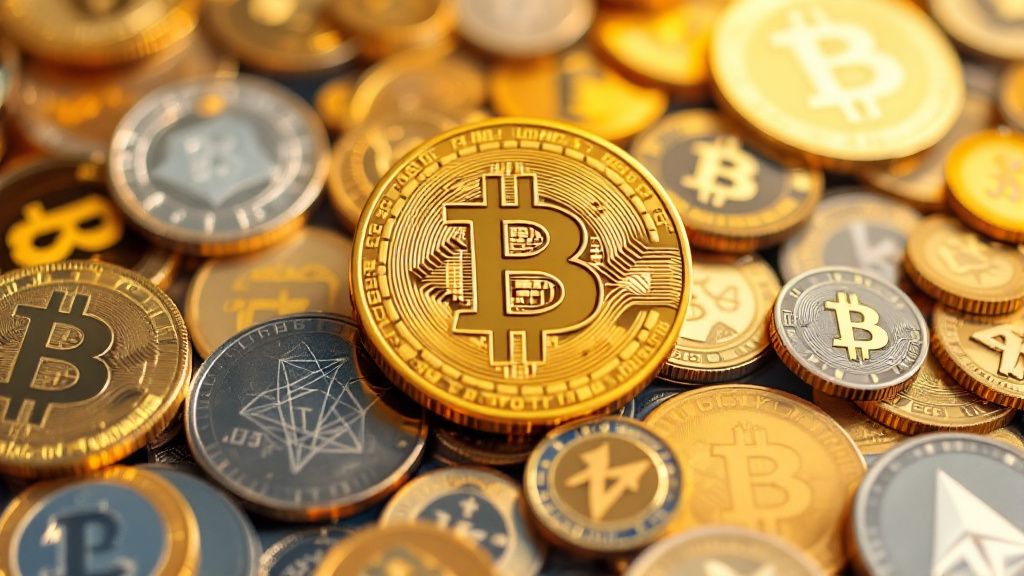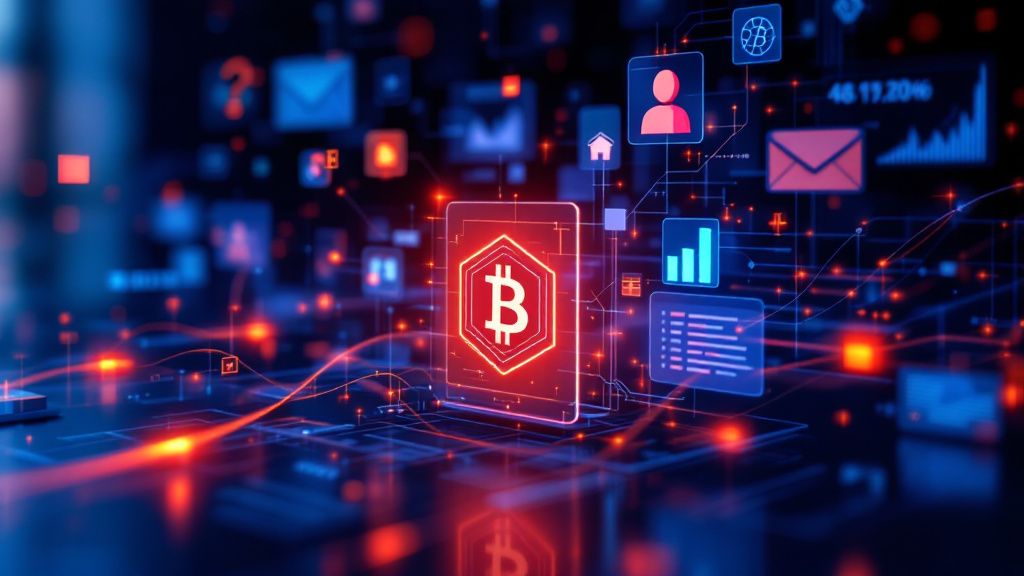A transformational shift is unfolding, heralding the era of decentralization. This movement is fundamentally reshaping traditional systems, where you find power, control, and decision-making distributed across a decentralized network rather than concentrated in the hands of a few. It allows you greater access and inclusion in spheres previously dominated by centralized entities. As a critical component, decentralization in blockchain technology is revolutionizing the way data is stored and transactions are conducted, ensuring transparency and security. The impact extends to decentralized finance, offering you unprecedented financial autonomy and innovative ways to manage your assets. This rise signifies a future where you can engage in systems that prioritize peer-to-peer interaction and eliminate intermediaries, fostering a landscape ripe with opportunity for participation in a more equitable digital economy.

Understanding the Concept of Decentralization
To grasp the essence of decentralization, you must recognize its foundation—distributing authority away from a single, central entity. In a world where systems have traditionally been centralized, decentralization in blockchain emerges as a pioneering force. Here, each participant in the network contributes to its security and validation, fostering transparency and reducing the risk of fraudulent activities. This shift empowers you to engage in ecosystems where the collective strengthens reliability.
When comparing decentralization with traditional centralized structures, the benefits become more evident. Centralized systems often suffer from single points of failure, where disruptions can have widespread consequences. In contrast, a decentralized network is resilient, as its distributed nature mitigates such vulnerabilities. Decentralized finance demonstrates this by removing middlemen, offering you direct control over financial operations, granting more agility, lower costs, and enhanced security.
Understanding these differences clarifies the advantages decentralization offers. You have more autonomy and flexibility and can operate in an environment where innovation can thrive outside conventional limitations. This new paradigm encourages you to explore the potential of decentralized models, as they pave the way for a more secure, inclusive, and balanced future, increasing opportunities for collaboration and growth while reducing unnecessary overheads.
Historical Evolution of Decentralized Systems
The journey of decentralized systems unfolds like a tapestry woven with threads of innovation and necessity. Early examples can be seen in indigenous governance, where decisions were often made collectively. In modern times, decentralization gained traction with technological advances, emphasizing distributed networks that empower you to be a contributing node rather than a passive participant. This shift laid the groundwork for robust, participatory structures in various fields.
Decentralization in blockchain can be likened to a neighborhood watch. Each participant acts as an overseer, ensuring that every transaction is transparent and verified by the group. Just as communities thrive on mutual trust and accountability, the decentralized network prospers through collaboration and shared responsibility, fostering a landscape where security is enhanced and control is democratized.
Over the decades, these decentralized principles have permeated industries, particularly through the rise of decentralized finance. This approach reduces traditional financial gatekeeping, granting you direct control over wealth management and transactions. By bypassing intermediaries, innovation flourishes, encouraging a dynamic ecosystem rich with opportunity. As these systems continue to evolve, they emphasize the shift towards networks that value collective empowerment over hierarchical control.

Decentralization in Government and Politics
Decentralization in government and politics signifies a movement towards distributing authority away from central powerhouses, empowering local entities and individuals to have a say in decision-making. By breaking away from top-down governance models, you foster a participatory democracy where voices at the grassroots level are amplified. This system encourages transparency and accountability, promoting policies that reflect the true needs and desires of communities.
To truly grasp decentralization in this realm, you need to shift your mindset from hierarchical structures to embracing a more distributed approach. Instead of relying on central figures or institutions, imagine a political landscape where power is shared and decisions are collectively reached. Such a perspective highlights the benefits of a decentralized network in ensuring that diverse perspectives are considered, enriching democratic processes.
In this evolving framework, the intersection with decentralization in blockchain offers intriguing possibilities. As trust in centralized systems wanes, blockchain technology could provide a secure means to record and verify electoral processes, strengthening confidence in governance. This convergence of technology and politics underscores your potential role in shaping a more inclusive and egalitarian political future. It challenges conventional paradigms, encouraging societies to innovate and adapt to new political landscapes that prioritize collaboration and empowerment.

Blockchain: The Backbone of Decentralization
Blockchain technology serves as the pivotal framework for decentralization, offering a robust infrastructure that redefines how data and transactions are managed. At its core, blockchain's distributed ledger ensures that information is securely and transparently recorded, accessible to all participants in the network. This structure challenges traditional centralized databases, making it nearly impossible for a single entity to alter records without consensus from the network, enhancing trust and security.
For example, in the financial sector, decentralized finance (DeFi) illustrates blockchain's transformative impact. It empowers you to engage in financial activities—such as lending, borrowing, and trading—directly with others, bypassing conventional banks and financial intermediaries. This decentralization of financial services democratizes access to critical financial tools, enabling a more inclusive financial ecosystem and giving you unprecedented control over your assets.
Beyond finance, blockchain's potential in revolutionizing industries is vast. Consider supply chain management, where blockchain can offer real-time tracking of goods from production to delivery. By employing a decentralized network, you can verify the authenticity of products, ensuring transparency and reducing fraud. This application exemplifies how blockchain's decentralized approach enhances efficiency and trust across various sectors.
As the backbone of decentralization, blockchain facilitates a paradigm shift in how industries operate, challenging established norms and encouraging innovation. It provides you not only with secure, transparent systems but also with the tools needed for decentralized autonomy. This foundational technology is driving the decentralization movement, influencing countless aspects of digital interaction, and paving the way for a future where you can experience greater empowerment and engagement in global networks.

The Role of Cryptocurrency in a Decentralized Economy
Cryptocurrency is a pivotal component in the framework of a decentralized economy, offering an innovative approach to value exchange. Tracing its evolution from the post-2008 financial crisis, cryptocurrencies emerged as a response to centralized banking systems' limitations. This digital form of currency operates on decentralization in blockchain technology, allowing you to transfer value without the need for traditional financial intermediaries. Cryptocurrencies like Bitcoin have paved the way for new decentralized networks that prioritize autonomy, security, and transparency.
In this decentralized economy, cryptocurrencies enhance economic freedom by providing an alternative to centralized monetary systems and promoting decentralized finance. These digital assets empower you to access global financial services that were previously inaccessible, offering a secure and private means of transaction. This shift challenges traditional economic models and encourages diverse, inclusive participation in financial activities. As more cryptocurrencies gain traction, they continue to redefine how you perceive and interact with money, underscoring the transformative role they play in the ongoing evolution of decentralized economic structures.

Decentralization in Everyday Technology
Decentralization is increasingly integrated into everyday technology, offering new ways to interact with the digital world. Popular applications, such as peer-to-peer sharing platforms, exemplify this trend by allowing you direct interaction without intermediaries. They empower you to engage in sharing economies, bypassing conventional central authorities, and highlighting the practical benefits of a decentralized network in your daily activities.
While many believe that centralized systems are necessary for security and organization, there’s a strong case for decentralization in your technological interactions. Decentralized networks reduce the risks associated with single points of failure and privacy breaches, granting you greater control and security of personal data. This perspective emphasizes the importance of distributing authority to enhance resilience and trust in the technologies you use.
In communication technology, decentralization makes significant strides with platforms that offer encrypted messaging services. These allow you to exchange information securely, ensuring direct and private communication without relying on centralized servers. This shift fosters secure environments where your privacy is prioritized, illustrating how decentralized principles are reshaping the landscape of everyday digital experiences, encouraging autonomy and privacy in a connected world.


.jpg)

.jpg)
.webp)
.webp)
.webp)


.svg)









